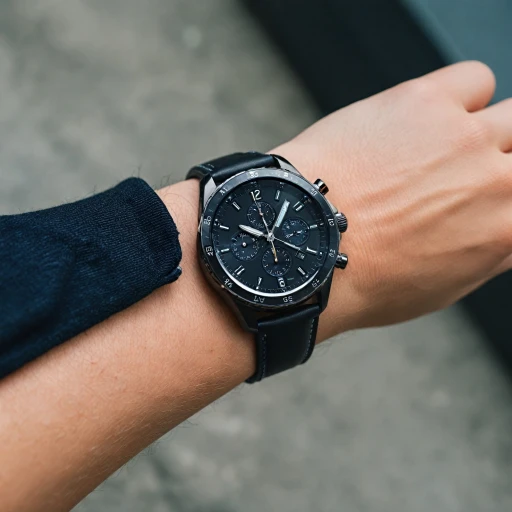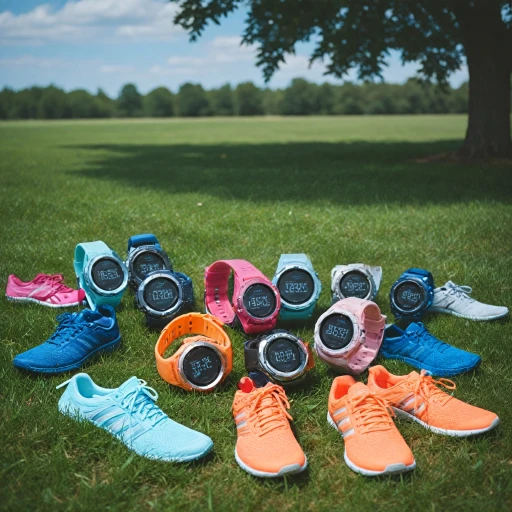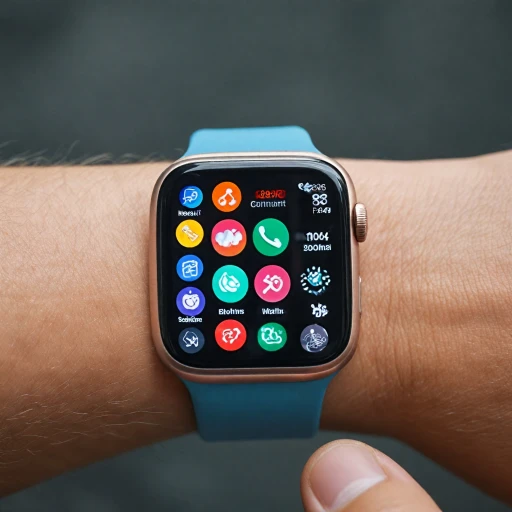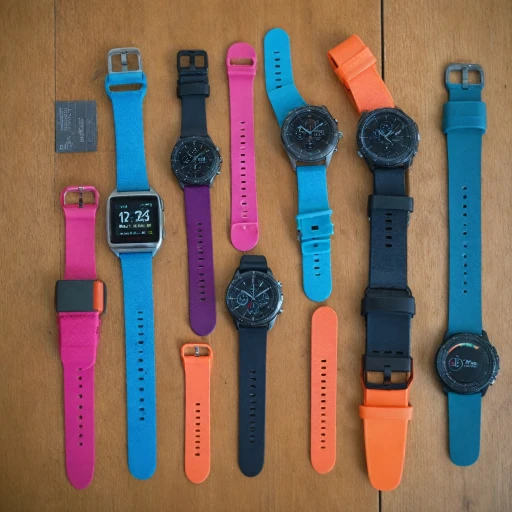
Understanding Fitness Trackers
A Closer Look at Fitness Trackers
When diving into the world of fitness and health, fitness trackers are indispensable tools that combine advanced technology with health-oriented features. These devices, like the Fitbit Charge and Samsung Galaxy Watch, have revolutionized the way we monitor our daily activities and overall well-being. They are designed to seamlessly integrate into our lifestyles, making health tracking more accessible. Fitness trackers come in various forms, including smart watches like the Apple Watch and more discreet wearables such as the Oura Ring. They offer an array of functionalities, from tracking steps and calories to monitoring heart rates and sleep patterns. For those interested in detailed health analysis, some models even feature blood oxygen and blood pressure tracking capabilities. One of the appealing aspects of fitness trackers is their ability to provide real-time data. This feature allows users to stay updated on variables like heart rate and sleep quality throughout the day, promoting a more holistic view of their health. For the sports-minded, devices often include multiple sports modes, and with GPS integration, tracking outdoor activities becomes highly accurate. When selecting a fitness tracker, several features should be considered to ensure it supports your health and fitness goals. Battery life is critical for uninterrupted use, with some high-performing models offering long battery durations. The display quality, such as an AMOLED screen, enhances the user experience with vibrant visuals and clear data presentation. If you're looking to personalize your fitness journey, many devices offer premium services like Fitbit Premium, which unlocks in-depth insights and guided programs. Plus, some wearables like the Pixel Watch offer seamless compatibility with Google services, enriching the ecosystem connectivity. To find the best fitness tracker for your needs, it's essential to consider factors like device compatibility, specific health metrics, and user preferences. If you're curious about identifying the most suitable tracker, explore more at this link.Key Features to Look for in a Fitness Tracker
Essential Characteristics of a Fitness Companion
Understanding the key features that make a good fitness tracker can significantly enhance your health and wellness journey. While each device offers a unique blend of capabilities, certain elements stand out as particularly beneficial.- Heart Rate Monitoring: A critical feature for tracking your health fitness is a reliable heart rate monitor. Devices such as the Fitbit Charge or Samsung Galaxy series provide accurate heart rate tracking, crucial for managing your workouts and health data effectively.
- Activity Tracking: Comprehensive activity tracking covers various sports modes and daily activities to keep you motivated and informed. Options like the Apple Watch excel in offering robust tracking tools across multiple activities.
- Sleep Tracking: Quality sleep is vital for overall health, and advanced features like sleep tracking can help improve this aspect of your life. Devices like the Fitbit Inspire analyze sleep patterns to suggest better sleep habits.
- Battery Life: Having a long battery life ensures continuous monitoring without frequent recharges. The best fitness trackers optimize battery usage, allowing you to focus on achieving your goals.
- Display and User Interface: The visual interface is another vital factor. An AMOLED or inch AMOLED display, such as those found in Pixel Watch models, offers clear visibility even under bright sunlight.
- Health Sensors: With advanced health sensors, some trackers can monitor blood oxygen and even blood pressure. These features contribute to a holistic view of your health.
- Integration with Apps: Devices like the Oura Ring or a smart tracker from Google offer integration with health and fitness apps. This enhances tracking capabilities and provides insights into your routines.
The Role of Fitness Trackers in Health Monitoring
The Importance of Data in Personal Health
Fitness trackers play a pivotal role in monitoring health by meticulously gathering data that offers insights into one's physical well-being. These devices, from entries like the Fitbit Charge to the Samsung Galaxy Watch, capture a wide range of metrics, including activity levels, sleep patterns, and vital statistics such as heart rate and blood oxygen levels.Heart Metrics and Beyond
Heart rate tracking is a standout feature in understanding daily physical exertion and detecting irregularities. Wearable devices use sensors to detect and record heart rate data, which helps users optimize their workouts and monitor their heart health. The addition of GPS in trackers enriches data with activity mapping, crucial for those engaging in outdoor sports. While not replacing professional medical devices, some smartwatches can even estimate blood pressure for broader health insights.More Than Just Fitness Tracking
Beyond regular tracking, devices like the Apple Watch and Pixel Watch offer sleep tracking features to assess the quality of rest. Proper sleep is essential for health, and monitoring sleep patterns helps identify habits that could enhance your overall lifestyle. The AMOLED displays on these wearables enhance readability, offering clear visuals for easy data interpretation.Sustaining Your Fitness Goals
Fitness trackers are not just about collecting data—they serve as motivational tools by setting personalized goals and providing feedback. For the fitness enthusiast, integrating smartwatches like those with AMOLED screens or devices with advanced battery life ensures seamless tracking throughout the day. Opt for fitness trackers with comprehensive sports modes for more targeted health fitness tracking. Enhancing your smartwatch experience with the right apps can further enrich these benefits. Explore more about apps that can boost your fitness tracker’s efficacy on this page: Enhance your smartwatch experience.Comparing Popular Fitness Tracker Brands
Evaluating Leading Fitness Tracker Brands
When it comes to selecting the best fitness tracker, it's essential to consider what different brands have to offer. Each brand brings its own strengths, particularly in aspects like fitness tracking, heart rate monitoring, battery life, and user interface. Here's a closer look at some of the popular brands that dominate the fitness tracker market, keeping fitness and health as core priorities.- Fitbit: Known for its user-friendly interface, Fitbit continues to be a leader in the fitness tracker industry. Products like the Fitbit Charge and Fitbit Inspire offer extensive features such as heart rate monitoring, sleep tracking, and even blood oxygen level measurement. Its Fitbit Premium service adds enhanced health insights and fitness coaching.
- Apple Watch: Apple’s smartwatch offering is a comprehensive device that goes beyond simple fitness tracking. With features like an inch amoled display and heart rate monitoring, it serves as both a health fitness companion and a smart device. Fitbit and Apple Watch both boast long battery life, but users often find Apple Watch's integration with other Apple devices seamless.
- Samsung Galaxy Watch: Samsung focuses on an advanced feature set with its Samsung Galaxy watches. Equipped with sports modes and GPS capabilities, they serve athletes and fitness enthusiasts well. Its amoled displays allow for crisp visuals, making it easy to glance at your data during workouts.
- Garmin: Renowned for its GPS accuracy, Garmin offers some of the best fitness trackers for dedicated runners and cyclists. These devices usually offer in-depth activity tracking and sturdy designs suitable for outdoor sports.
- Oura Ring: While not a typical wrist-based tracker, the Oura Ring provides unique insights into sleep patterns and daily readiness through comprehensive data collection. It stands as an innovative player by focusing primarily on holistic health data.
- Google Pixel Watch: As a smart watch with fitness tracking capabilities, Google's Pixel Watch incorporates Google's health data ecosystem. Although a newer player, its integration with smart assistant features and robust display bring a fresh take to the market.
Integrating Fitness Trackers into Daily Life
Seamlessly Integrating Fitness Trackers into Routine
Incorporating a fitness tracker into your everyday life may seem daunting at first, yet it's simpler than one might think. The key lies in gradually building a habit while maximizing the efficiency of the device to suit your specific health goals.
For fitness enthusiasts, these trackers offer a comprehensive overview of your activity levels through features like step counting, various sports modes, and heart rate monitoring. Devices such as the Fitbit Charge and Samsung Galaxy, with their efficient battery life and robust tracking capabilities, provide accurate insights into your fitness regime. Having access to these real-time data allows users to seamlessly adjust their exercise and connectivity with various fitness platforms.
Take advantage of the best fitness tracker suited to your lifestyle. With options such as the Fitbit Inspire or Apple Watch offering features like blood oxygen and sleep tracking, users can consistently track the quality of their rest and day-to-day activities. Monitoring these metrics can guide adjustments necessary for a healthier lifestyle.
Optimizing Health with Smart Features
The inclusion of advanced technology—such as inch AMOLED displays in devices like the Pixel Watch or the integration of Google functionalities—underlines the importance of smart technology in health optimization. These features are crucial for providing visibility even under bright outdoor conditions, making it easier to use throughout the day.
Embrace the versatility of fitness trackers that offer capabilities beyond just physical activity. The expansion into blood pressure monitoring and heart rate variability tracks not only physical exertion but stress levels too, presenting a holistic view of your well-being.
Fit for Every Lifestyle
Whether your day includes high-intensity workouts or more sedentary activities, there’s a smart watch or fitness tracker designed to meet those needs. Tailor your device use with fitness tracking apps that complement your preferred sports modes and health objectives. Utilizing platforms like Fitbit Premium grants access to a plethora of resources, optimally integrating devices into any lifestyle pattern.
Ultimately, the effective use of fitness trackers hinges on personal consistency and knowledge of one’s health requirements. Over time, these devices become a natural extension, making it easier for individuals to keep track of both their fitness and health goals seamlessly.
Future Trends in Fitness Tracker Technology
Emerging Technologies Shaping the Future of Fitness Tracking
The landscape of fitness trackers is rapidly evolving, propelled by the continuous advancement in technology. As individuals strive for better health and increased fitness levels, the abilities of these wearable devices have expanded to provide a more comprehensive understanding of users' wellness. Here are some trends to watch:- Advanced Health Metrics: Modern trackers are no longer limited to just step counting. Devices such as the Fitbit Charge and Samsung Galaxy Watch now offer blood pressure and blood oxygen tracking along with heart rate monitoring. This expanded range of health data empowers users to make more informed decisions about their health and fitness routines.
- Enhanced Sleep Tracking: Quality sleep is crucial for overall well-being, and smart watches are getting better at analyzing sleep patterns. With the integration of advanced sensors, brands like Fitbit Inspire and Oura Ring are providing insights into sleep stages, helping users to optimize their sleep for improved health and recovery.
- AI and Machine Learning: Artificial intelligence is being incorporated into fitness devices to offer personalized recommendations. Google’s Pixel Watch and other smart devices use machine learning algorithms to predict patterns and offer tailored suggestions based on past activity and fitness data.
- Longer Battery Life: As users demand more from their fitness trackers, manufacturers are focusing on improving battery longevity. Innovations in battery technology ensure that devices with inch AMOLED displays and multiple sports modes, such as the new Apple Watch, can maintain functionality without frequent charging interruptions.
- Integration with Smart Home Devices: The connectivity of fitness trackers with other smart devices in the home is increasing. This enhances the usability of trackers by synchronizing with smart home systems, providing a seamless user experience that extends beyond fitness tracking.
- Broader Ecosystem Access: Subscriptions like Fitbit Premium offer expanded features and in-depth fitness insights, providing not just data but also actionable fitness advice. This trend is becoming more common as manufacturers aim to create an ecosystem around their devices.









